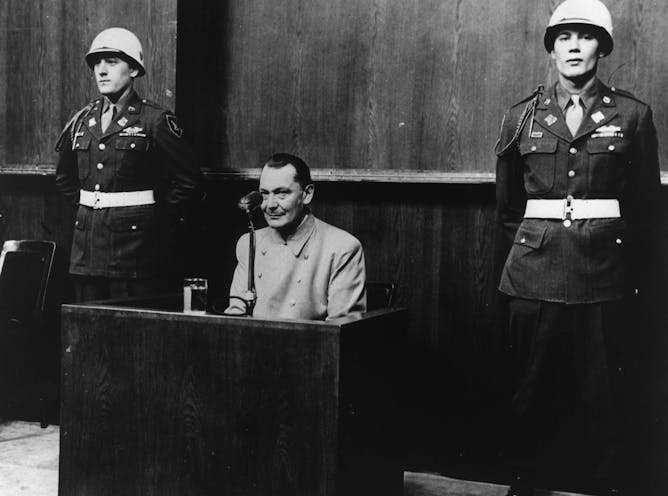|
|
|
|
If you were a teenager – or lived with one – any time prior to 2008, news this week that the UK government is thinking about bringing back Sats for 14-year-olds across England may well have caught your eye. If you happened to teach teenagers at the time and had to prep for those tests, your reaction will have been altogether less sanguine. These were not popular exams. The then-Labour government justified their demise by claiming they made little sense. They brought children few benefits, they said. And the workload they brought teachers was untenable.
So why bring them back? Well, as education specialists Stephen Gorard and Nadia Siddiqui convincingly make the case, because key stage three Sats weren’t actually a bad idea. And those reasons given for scrapping them never really held water either. Crucially, research shows the teacher assessments that have since replaced them aren’t as fair as they should be.
Elsewhere, as a 100-year-old man faces trial in Germany, a modern European historian tracks the dogged lifelong determination required to bring Nazi war criminals to justice. And Boris Johnson’s hirsute approach to populist politics is carefully untangled ahead of his Tory conference speech.
|

|
Dale Berning Sawa
Acting commissioning editor, Cities and Young People
|
|

Would formal exams be a better measure of year nines’ performance than the teacher assessments currently in place?
keith morris / Alamy Stock Photo
Stephen Gorard, Durham University; Nadia Siddiqui, Durham University
Would formal exams be a better, and fairer, measure of pupil performance than teacher assessments?
|

Johnson: artfully unkempt as a way of life.
EPA/Andy Rain
Dominic Janes, Keele University
When preened and powdered aristocrats starting losing their heads, politicians learned to start dressing like ordinary people.
|

Hermann Goering takes the witness stand at the International Military Tribunal in Nuremberg.
akg-images / Alamy Stock Photo
Rainer Schulze, University of Essex
The complex history of prosecuting Nazi war crimes means elderly men and women are on trial for crimes committed decades ago.
|
Science + Technology
|
-
Paolo Barucca, UCL
The work of Italian physicist Giorgio Parisi has helped predict the unpredictable, from changes in the climate to the movements of flocks of starlings.
-
William Partlett, The University of Melbourne
Russia’s latest actions have worrying implications for democratic opposition movements.
-
David Tuffley, Griffith University
It took Facebook nearly six hours to get its services back online. In the meantime, Twitter had a field day.
-
Christopher Lovell, University of Hertfordshire
Did we observe the most distant gamma ray burst yet seen, or was it something closer to home?
|
|
Health + Medicine
|
-
Colin Angus, University of Sheffield
Around half of recent excess deaths in England have been directly from COVID.
-
Sarah Schiffling, Liverpool John Moores University
The world will soon have enough doses to get all adults double vaccinated, yet less than 3% of people in low-income countries have had a single vaccine dose.
-
Francis McGlone, Liverpool John Moores University
These discoveries could help us treat a variety of conditions in the future – including chronic pain.
|
|
Environment + Energy
|
-
Julia Bronnmann, University of Southern Denmark; Andreea L. Cojocaru, University of Stavanger; Frank Asche, University of Florida
Ecolabelled seafood fetches higher prices in supermarkets, giving retailers and producers the incentive to up their sustainability game.
-
Dr. Pushp Raj Tiwari, University of Hertfordshire
Syukuro Manabe and Klaus Hasselmann have won the Nobel prize in physics for their climate modelling research.
|
|
|
|
Politics + Society
|
-
Malcolm Evans, University of Bristol
Gang violence is a serious problem in Latin American society – not just its jails.
|
|
Arts + Culture
|
-
Pierre-Yves Modicom, Université Bordeaux Montaigne
It’s one of the most common expressions used in French but also one of the most controversial. A linguist explains why “pas de souci” is no mere English import.
|
|
| |
Featured events
|

|
— The University of Manchester, Oxford Road, Manchester, Manchester, M139PL, United Kingdom of Great Britain and Northern Ireland — University of Manchester
|

|
— Online - Academia Europaea Cardiff Knowledge Hub, Cardiff University, Cardiff, Cardiff [Caerdydd GB-CRD], CF24 4HQ, United Kingdom of Great Britain and Northern Ireland — Cardiff University
|

|
— Online, Southampton, Southampton, SO17 1BJ, United Kingdom of Great Britain and Northern Ireland — University of Southampton
|

|
— Thomas Paine Study Centre Lecture Theatre, University of East Anglia, Norwich , Norfolk, NR4 7TJ , United Kingdom of Great Britain and Northern Ireland — University of East Anglia
|
|
|
|
| |
| |
| |
| |
| |
|
|
|
|
|
|
|